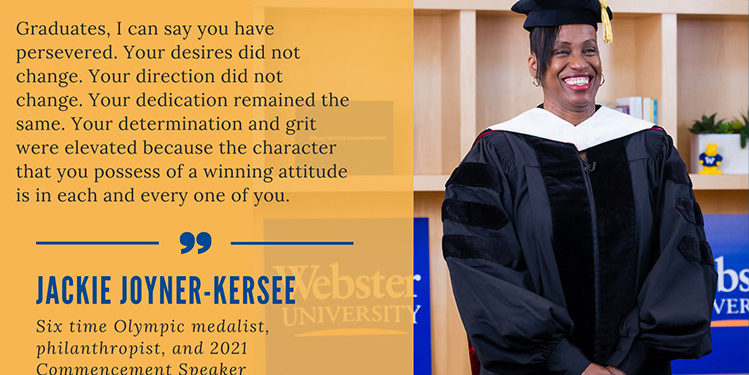The 101st Webster University Commencement was held in an entirely virtual environment. Unlike the previous year, which also took place during the Covid-19 pandemic, this year’s graduating class did not assemble at all and watched the ceremony from home through one of the University’s websites. After the Deans for each department gave their annual speeches, each graduating student’s name was revealed scrolling on screen in much the same way as watching film credits.
I attended the George Herbert Walker School for Business and Technology, along with many other students. I received a Masters of Science in Cybersecurity and certificates in Cyber Threat Detection and Information Assurance. Even though many students were disappointed that they could not assemble with their peers, it was exciting to know that when your name shows up on screen that your family and friends watching from various locations were cheering and celebrating.
Out of the many graduating students I only knew two of them, and I cheered when their names were on screen. I was really happy that they had made it through their programs successfully.
The highlight of the ceremony was the keynote speaker Jackie Joyner Kersee. She is originally from East St. Louis and is recognized as one of the best track and field athletes in the history of the sport and the Olympic games. She received an honorary doctorate degree from Webster University, making her Dr. Jackie Joyner Kersee. It was an honor to be in the virtual audience for this part of the ceremony.
As a fan of athletics and philanthropy, I thoroughly enjoyed this moment because I have been a fan of her’s my entire life and I have great respect for the ways she gives back to communities in both St. Louis and East St. Louis. Dr. Kersee is more than an athlete; she is a giving person who is always trying to find ways to make people’s lives better. I am proud that I can tell others about how great it was to graduate the same day that Dr. Kersee was honored. Her keynote speech was well written and delivered in a way that only should could; it was almost entirely about the things we can do to make a difference in our world. The speech left me feeling inspired, and urged me to look at my own life and discover ways that I can give back to any communities that I find significant.
I plan to give back in my life like Dr. Kersee does. There are many different ways to be a philanthropist, but I have some ideas about the communities I would like to give back to once I am successful. Growing up in St. Louis has shaped the ideas I have about giving back. I would like to create scholarships for Christian Brothers College High School (CBC), Saint Louis University and Webster University. I would also like to contribute to cancer and transplant research and technology for both children and adults. I also want to give back to the arts in a number of ways that is too long to assert in this post. I am a dreamer, and most people would probably say that these ambitions are too difficult to obtain. However, after listening to Dr. Kersee, I realize that anything is possible despite what is said by naysayers.
Dr. Kersee is a six-time Olympic gold medalist and holds the world record for women’s heptathlon with 7,291 points. While she is often in the discussion for being the greatest female athlete in history, her work outsitde of athletics is even more incredible.


